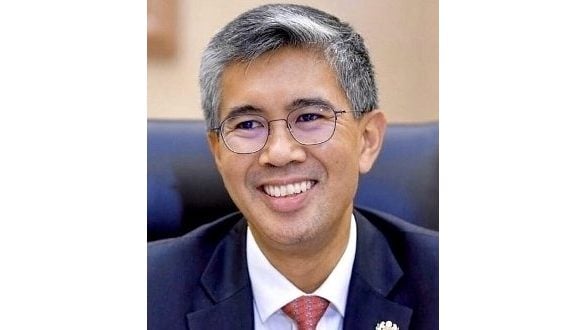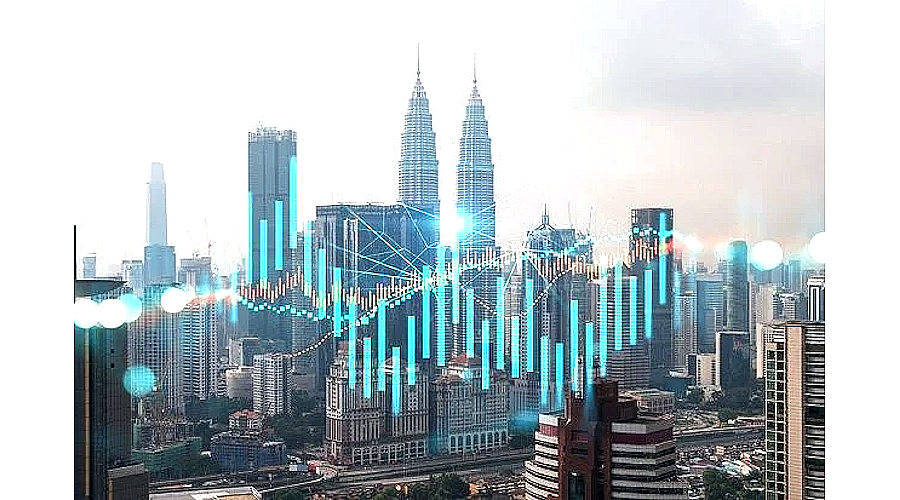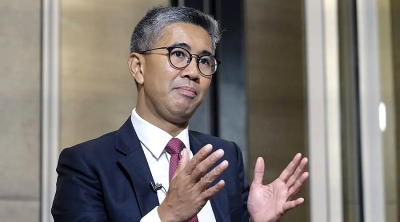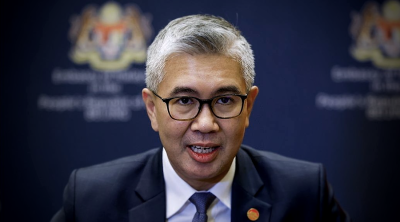
As we usher in the New Year, it is important that we take a step back, and learn the right lessons from 2023’s challenges.
2023 was an important year for MITI in forging a more resilient, inclusive and sustainable economic future for Malaysia on all fronts: investment, trade and industries.
The launch of the New Industrial Masterplan 2030 (NIMP 2030) to the I-ESG capacity building policy, sector-specific pushes such as the Chemical Industry Roadmap and pro-EV policies, among others, have all helped sustain the investment momentum for Malaysia in 2023.
For the first nine months of 2023, approved investments were RM225 billion, the highest it has been in a decade, 6.6% higher than the same period in 2022, expected to generate close to 90,000 jobs.
While investment figures have surged, trade numbers, especially exports, were expectedly impacted by the global economic slowdown.
For 2024, there are three points I would like to stress.
First, in making investment and trade the key drivers of our economic growth, we must be willing to take calculated risks in forging a new economic future for Malaysia, especially in the digital and green economies.
Second, we absolutely must properly execute our national plans. 2024 is an important year to build on the foundations we have laid.
Third, we must stay the course, no matter how hard the challenges.
I keep reminding myself, we must consistently explain to the rakyat why we do what we do, and how it benefits the public in the long run.
Fragile global growth in 2024
As an open trading economy, the prevailing gloomy global economic outlook—with IMF cutting global growth projections to 2.9% for 2024—will continue to be a challenge.
Also, geopolitical risks stemming from the ongoing wars in different parts of the world will test supply chain resilience and put upward pressure on inflation.
The multi-polarity caused by competing global superpowers must be remedied by a stronger commitment to finding global solutions.
While several major economies will be faced with crucial elections in the coming year, there must still be continued effort to push through international economic cooperation.
MITI will continue to remain vigilant and we hope the private sector, disciplined.
The government is optimistic that our economy will grow between 4-5% in 2024 if there is greater stability in the global economy that supports the overall growth trajectory.
Everyone loves a winner
Meanwhile, we must shore up our economic credibility. The NIMP 2030, NETR, i-ESG and other plans give us a window to do so.
Investors crave political stability and policy consistency. They also want to see that their considered investment destinations have vision and are constantly improving. People love to do business with winners.
In 2024, we will continue enhancing the ease of doing business and the investors’ overall journey.
The recently launched Invest Malaysia Facilitation Centre is aimed at exactly that, and towards improving our Global Competitiveness Ranking.
With increased competition for investments within ASEAN, while we pull out the red carpet for global investors, we must ensure investments are from the right target sectors, with significant value-add and spillovers to our domestic economy.
An agenda for investment, trade and industry
Meanwhile, the government is working to build an ecosystem and regulatory frameworks that support investments in the green and digital economies.
For instance, electric vehicles (EV) and renewable energy (RE) have been identified as key growth sectors in the NIMP, while one of its missions will involve enhancing the Industry4WRD programme to increase technology adoption.
Through robust international partnerships and nurturing local champions, Malaysians can emerge as technology producers and leaders, rather than mere users.
On trade, our mantra is exports, exports, exports. MITI’s i-ESG framework will help our companies access markets while fulfilling sustainability requirements globally.
The time has also come for us to leverage on the FTAs we have signed, such as the CPTPP and RCEP.
The CPTPP, for example, has enabled Malaysian exporters and producers to gain more access to not only traditional destinations like Japan, but also new markets such as Mexico, Canada and Peru.
MITI and its agencies are committed to assist Malaysian companies in becoming international players.
Finally, we must prepare our industries to move up the value chain, as well as embrace tech sustainability and inclusivity.
“Inclusivity” here involves not only creating opportunities for and strengthening the capacities of SMEs but also in ensuring a more even economic growth across Malaysia.
We aim to create winners
In executing the transformative NIMP 2030, there will inevitably be “winners” and “losers”.
Transforming our industries, or reshuffling our trade and investment flows will have impacts on industries and jobs.
But MITI is clear on producing more winners, including via the following outcomes:
For companies/exporters: Speed up their embracing of ESG considerations, including changing their energy consumption patterns.
Furthermore, AI will not only transform economies but radically alter how we interact with each other.
Malaysia must embrace AI as a focus, not shrink from it. The NIMP’s objectives includes transforming 3,000 smart factories and positioning Malaysia as a Generative AI hub.
For workers/people: We are working towards higher productivity, and better wages.
Technology will help them work smarter, while sectors like RE will create new jobs to strategically replace traditional industries.
The Progressive Wage Policy is a push to increase productivity and our economic competitiveness.
If we can achieve all these, the net outcome will be a growing GDP, more employment, higher incomes for Malaysians as well as stronger companies and industries.
Malaysia needs moonshot thinking
The most sustainable outcomes will always take time to execute. But, like it or not, external changes will happen.
Ergo, we must make sure Malaysia’s industry is ready sooner rather than later, and MITI is staying the course.
Ironically, staying the course means Malaysia must abandon the familiar: including past economic models that served us well for decades but are ripe for change.
Malaysians need “moonshot thinking”: an attitude that pushes individuals to firmly believe in achieving something seemingly impossible, such as radical solutions using disruptive technology and approaches to solve seemingly insurmountable problems.
Instead of thinking: “We can’t do X,Y,Z because this is Malaysia, and we’re Malaysians,” we should instead think: “We WILL do X,Y,Z, because this is Malaysia and because we are Malaysians.”
This must be our default setting, laced by a healthy dose of adventure and determination.
My professional New Year’s Resolution is to help more Malaysians feel this way—and give them reasons to do so.
Ultimately, the goal is to strengthen Malaysia’s economic future, where our youths have jobs with decent wages, and our companies are profitable.
Meanwhile, my personal resolution is to eat healthier, get fitter and create more meaningful moments with my family. Both will be done, insyaAllah!
May we be steadfast in achieving all that we have planned. 2024: we are ready for you!

(Tengku Zafrul Tengku Abdul Aziz is the Minister of Investment, Trade and Industry, Malaysia.)
ADVERTISEMENT
ADVERTISEMENT






































